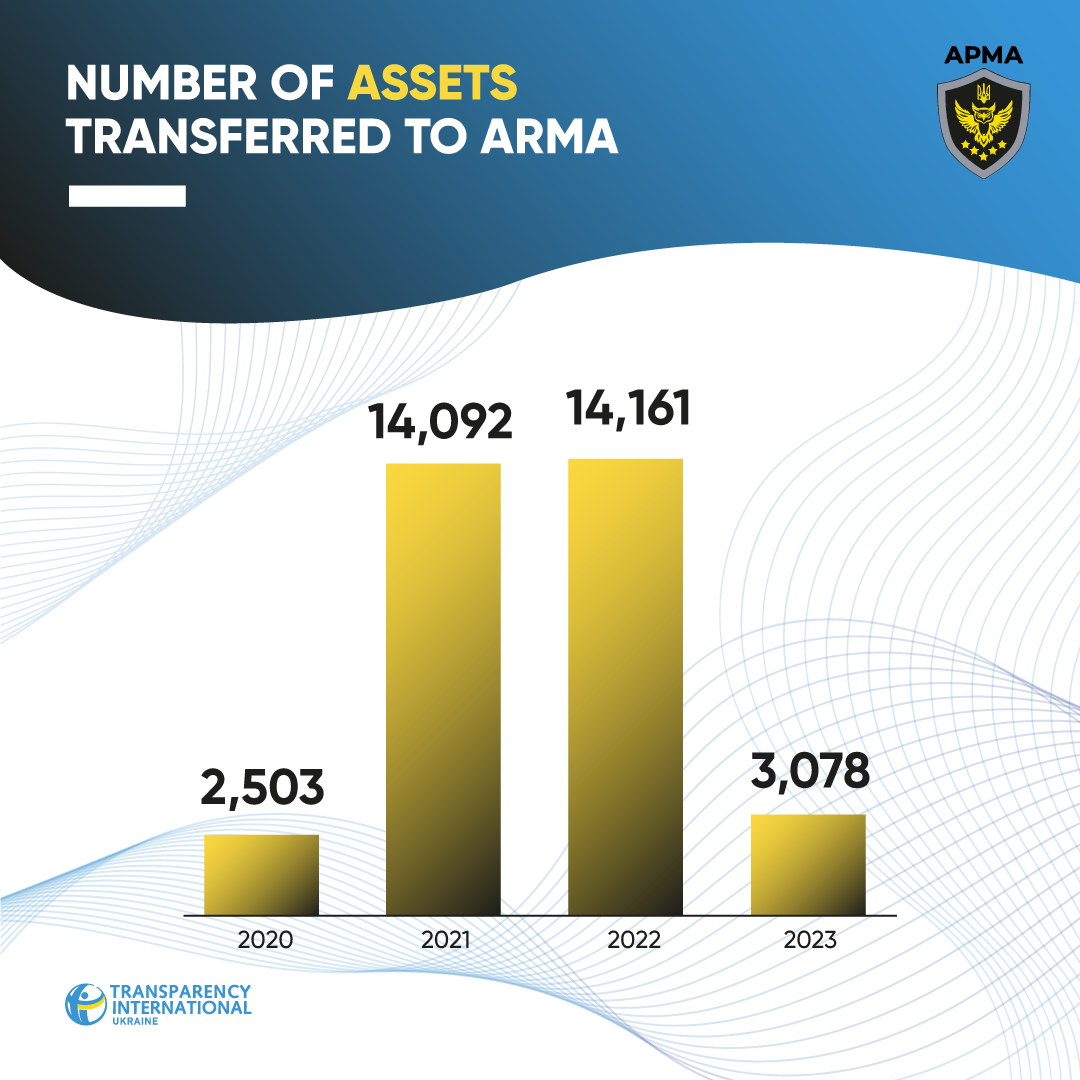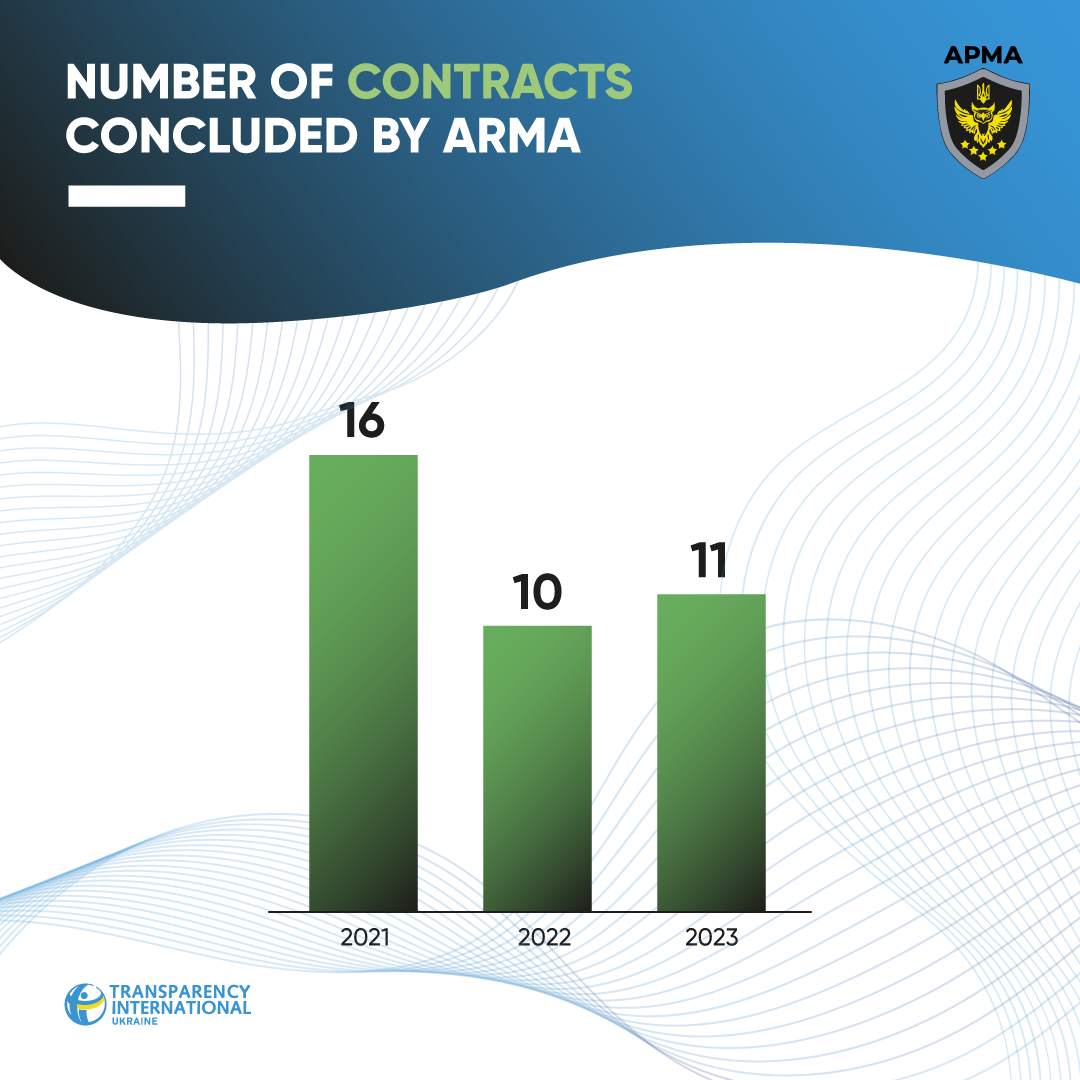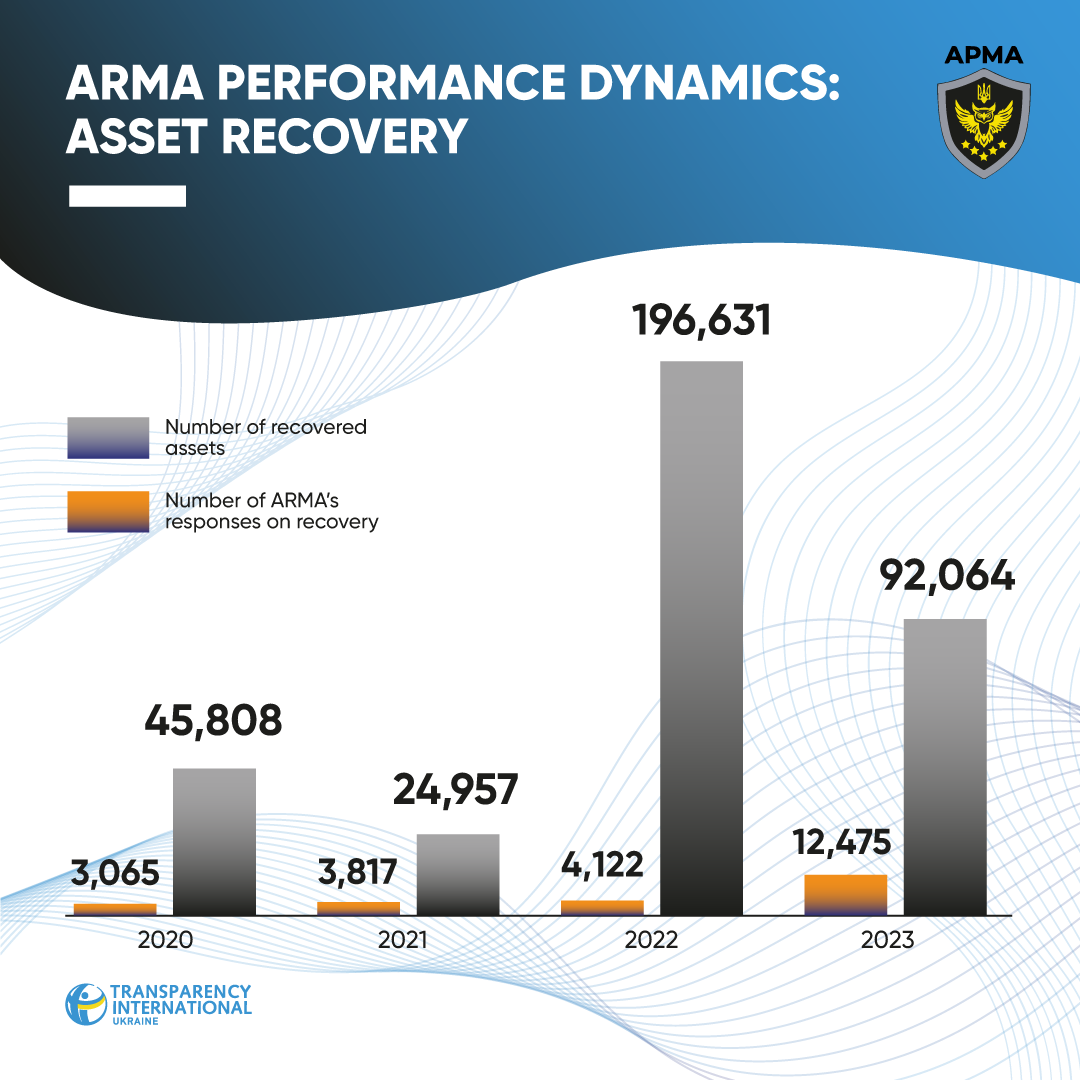In March, the Asset Recovery and Management Agency reported on its performance for the previous year. It seems that the management of ARMA sees everything optimistically and joyfully, but we do not share such emotions.
The perceptible impact of anti-corruption bodies’ efforts remains elusive. Not all citizens engage in activities such as registering draft laws, attending court hearings, or obtaining licenses for mineral extraction. On the other hand, reports of corruption cases can foster the perception of pervasive corruption within authorities.
A comprehensive evaluation of the performance of anti-corruption bodies – NABU, SAPO, NACP, and ARMA – is feasible due to their periodic external independent audits. Unfortunately, since the Revolution of Dignity, only the NACP has undergone such a procedure, and even then, it occured only once. Even that single audit yielded crucial findings for the Agency, which, among other factors, influenced the selection of the new head of the NACP.
Therefore, the need to understand the real problems of anti-corruption bodies remains relevant. For over a year, we have awaited an external audit of NABU’s operations, as mandated by law. However, throughout the entirety of the Bureau’s existence, such an audit has never been carried out. The same holds true for the operations of ARMA, prompting an increasing array of questions as time progresses.
We firmly believe that delaying the external audit of ARMA is no longer tenable. And there are 3 reasons for this. We’ll describe them in details.
For over a year, we have awaited an external audit of NABU's operations, as mandated by law. However, throughout the entirety of the Bureau's existence, such an audit has never been carried out. The same holds true for the operations of ARMA, prompting an increasing array of questions as time progresses.
Pavlo Demchuk
1. Throughout its existence, ARMA has never established itself as a reliable partner for bodies within the criminal justice system
Let me remind you that according to its mandate, ARMA is tasked with effectively locating assets owned by individuals involved in criminal cases as requested by law enforcement officers and managing seized assets. However, in practice, this institution struggles to manage the volume of assets it receives and fails to effectively carry out its functions.
This is especially evident in the performance results of the Agency in 2023. For instance, the number of assets transferred to ARMA’s management sharply declined compared to both 2021 and 2022. This indicator is influenced by both the frequency of cases warranting asset transfer to ARMA and the level of trust in the Agency.
Despite the exceptionally large number of seized assets transferred to ARMA in 2022, the situation regarding the number of concluded management contracts has barely changed.
Several factors have contributed to these lackluster outcomes, including the ambiguity surrounding governance rules and procedures, the absence of high-quality asset tracing tools, the prevalence of numerous corruption loopholes, and the significant temptation to illegally amass wealth from property “taken” from its rightful owners.
Due to the Agency’s reputation, implementing changes to enhance its role and functions proves exceedingly challenging. However, tools exist to enable an objective assessment of its work, such as the implementation of external independent evaluations (audits) to gauge its effectiveness.
Due to the Agency's reputation, implementing changes to enhance its role and functions proves exceedingly challenging. However, tools exist to enable an objective assessment of its work, such as the implementation of external independent evaluations (audits) to gauge its effectiveness.
Pavlo Demchuk
2. ARMA’s performance in critical domains, notably asset search and management, is on the decline
Today, Olena Duma, the head of ARMA, reports on what she describes as a “watershed” year in the Agency’s history. She presents graphs that exclusively depict growth. However, as indicated by statistical data, the number of sought-after assets is progressively decreasing, while the number of assets transferred to management and signed contracts with managers has remained almost unchanged.
That is, the key areas of the Agency’s work, which can be used to assess its effectiveness, are in stagnation. And despite all the praise of the leadership, ARMA cannot be evaluated by budget revenues, because it is not a fiscal body.
The Agency is designed to prevent potential losses of the state budget at the expense of private managers, and this should always be remembered. And the problems in this area can be highlighted by an external audit.
The Agency is designed to prevent potential losses of the state budget at the expense of private managers, and this should always be remembered.
Pavlo Demchuk
3. The existing model of independent external assessment of ARMA’s activities is very imperfect
According to current auditing standards, political actors participate in the formation of the commission, including the President of Ukraine, the Verkhovna Rada, and the Cabinet of Ministers. Therefore:
- There is a risk of the relevant provisions of the Law on ARMA being deemed unconstitutional due to the absence of the president’s authority to appoint a member of the Agency’s external evaluation commission. A similar collision arose with the relevant provisions of the Law on NABU in 2021.
- This model contributes to excessive politicization of the assessment process. This was evident during the competitions for the head of ARMA and for the head of SAPO, where due to political intrigues, such selections dragged on excessively.
Not only that, the Agency now undergoes an external audit every year by a reputable auditing company. But, as the history of the last audit shows, this is also not a very effective measure, because of:
- possible manipulations with the procurement of auditing company services. Last year, the CROW UKRAINE audit company managed to secure an audit contract only through appeals, as ARMA had established very specific requirements. Probably to achieve victory of the “related” auditing company;
- auditors depend on what information the Agency provides them. For instance, the new management of ARMA did not furnish certain materials, presumably due to restricted access to them. And this, despite the likelihood that they were interested in a negative outcome for the 2022 audit.
Draft law No. 9515, aimed at establishing an effective mechanism for the external evaluation of ARMA’s performance, has already been registered in Parliament. However, it needs to be refined.
In particular, it is worth paying attention to the following significant shortcomings:
- the number of members of the assessment commission should be reduced to three, who are appointed by the Cabinet of Ministers on the basis of proposals from international partners;
- expand the circle of persons who can apply for the position of a member of the assessment commission.
External evaluation of the performance of state bodies is crucial for gauging the effectiveness of their operations. However, for institutions like ARMA to function optimally, it’s imperative to carefully select the teams responsible for conducting such assessments and to grant them access to the maximum amount of data possible.
***
Ukrainian society is calling for action to combat corruption. International partners are keen on the efficient functioning of the anti-corruption system, which, notably, will facilitate Ukraine’s effective European integration.
The Ukraine Facility Plan explicitly highlights the necessity of implementing an independent external system to evaluate the effectiveness of ARMA’s activities. To fulfill these requirements, it is imperative to enact amendments to the law and conduct comprehensive evaluations of ARMA’s activities, including regular and high-quality audits.
For institutions like ARMA to function optimally, it's imperative to carefully select the teams responsible for conducting such assessments and to grant them access to the maximum amount of data possible.
Pavlo Demchuk









